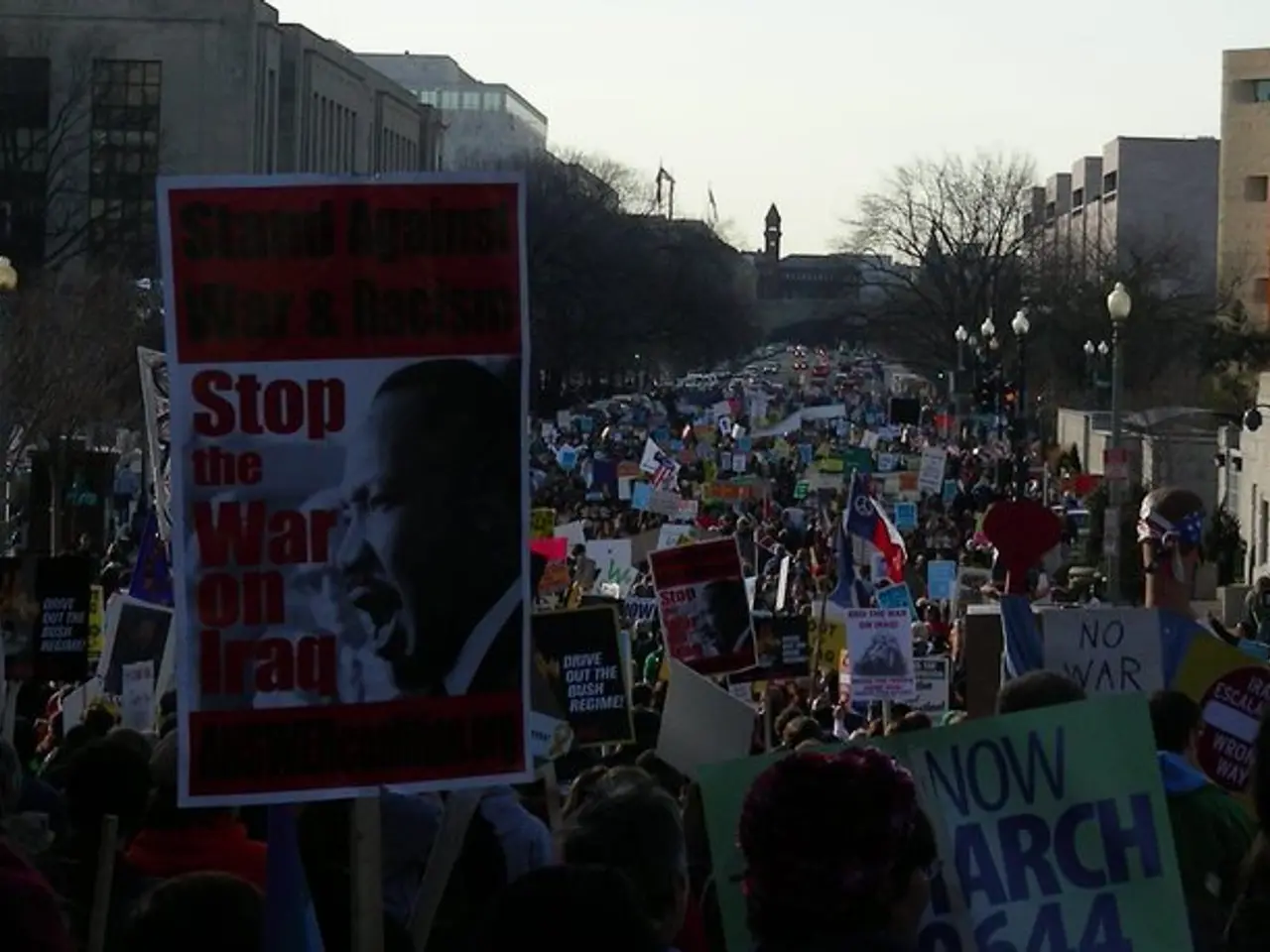Strategies for Promoting Political Influence and Establishing Unmatched Political Brand Recognition
Political Influencer Marketing: A New Approach to Building Brand Awareness
Political influencer marketing is a strategy that engages political influencers and their audiences to promote political messages, ideologies, or candidates. This approach is gaining popularity as it offers a cost-effective and highly engaging way to build brand awareness and drive voter engagement.
Influencer marketing involves leveraging the reach and credibility of social media influencers to promote political messages. These influencers, who have built a substantial following, often have high engagement and trust among their followers, allowing political messages to appear more authentic and relatable.
Key goals of political influencer marketing include increasing awareness, shifting public perception, mobilizing support, and driving voter turnout or engagement. Different platforms serve distinct roles. For instance, Twitter encourages political discussion, Instagram offers engaging visual content, and TikTok is effective for reaching younger voters with creative messaging.
Effective strategies for using political influencer marketing to build brand awareness include leveraging the influencer’s role to build trust and credibility with the audience, creating authentic and transparent messaging, and deploying tailored multichannel communication tactics across social media platforms suited to different demographics.
To make the most of political influencer marketing, it is essential to identify the right influencers. Influencers are selected based on audience demographics, engagement rates, credibility, content alignment, and past political stances. Youth influencers, for example, are instrumental in mobilizing first-time voters and promoting civic participation among younger demographics. Regional language influencers help reach vernacular-speaking voters and create cultural resonance in local communities.
Micro-influencers often have deeper connections with niche audiences, making them ideal for hyperlocal or issue-specific campaigns. Campaigns collaborate with influencers to create relatable content that aligns with their political narrative and connects with specific voter demographics.
To build trust and credibility, it is crucial to maintain transparency. Influencers must be prepared for polarized reactions and may mitigate backlash by explaining their views and encouraging respectful discourse. Ethical influencers use hashtags like #ad or #sponsored and clearly mention their affiliation to ensure transparency and compliance.
Political campaigns may use macro-influencers, micro-influencers, or nano-influencers depending on the campaign’s goals and audience niche. The future of political influencer marketing in India includes more regional voices, data-driven targeting, AI-generated influencers, and stricter ethical oversight.
To implement a successful political influencer marketing campaign, start by developing a social media strategy. Create an online presence and build a following on social media platforms like Instagram, YouTube, X (formerly Twitter), and regional platforms like ShareChat and Moj. Post on social media platforms regularly and consistently, sharing quality content from other influencers who share the same values as you do.
Engage with people by sharing their posts, commenting on their photos, liking other people's videos, etc.; this will help build rapport with potential supporters. Connect with these influencers via email or social media to share content that is relevant to them and their followers. Offer an exclusive event to influencers, such as a live Q&A session on social media with the influencer's followers.
Create content that is educational and informative, resonating with the influencer's audience. Share videos of yourself discussing political issues, and create a personalised video for each influencer. Ask for their endorsement on social media and ask them to share the message with their followers.
Promote your political brand with paid advertising on Facebook, Twitter, Instagram, etc. Create an online presence with a website, blog, and email list. Monitor feedback from influencers, followers, and customers to improve your strategy.
In conclusion, political influencer marketing offers a powerful way to build brand awareness, foster credibility, engagement, and action that can amplify political campaigns or cause-driven branding efforts effectively. By leveraging the power of influencers, political campaigns can reach a wider audience, engage with voters more effectively, and ultimately, drive voter turnout and support.
- To complement political influencer marketing efforts, consider utilizing analytics tools to monitor engagement rates, sentiment analysis, and reach across various social media platforms.
- By collaborating with bloggers who focus on general-news, politics, entertainment, and social-media, political campaigns can expand their reach and appeal to a broader audience.
- Offering competitive services, such as organizing events, managing content creation, and providing consulting on social-media strategy, can attract more influencers to partner with political campaigns.
- Maintaining transparent communication and consistent messaging on social media and traditional channels ensures that political messages resonate with diverse audience demographics, fostering trust and increasing support.






